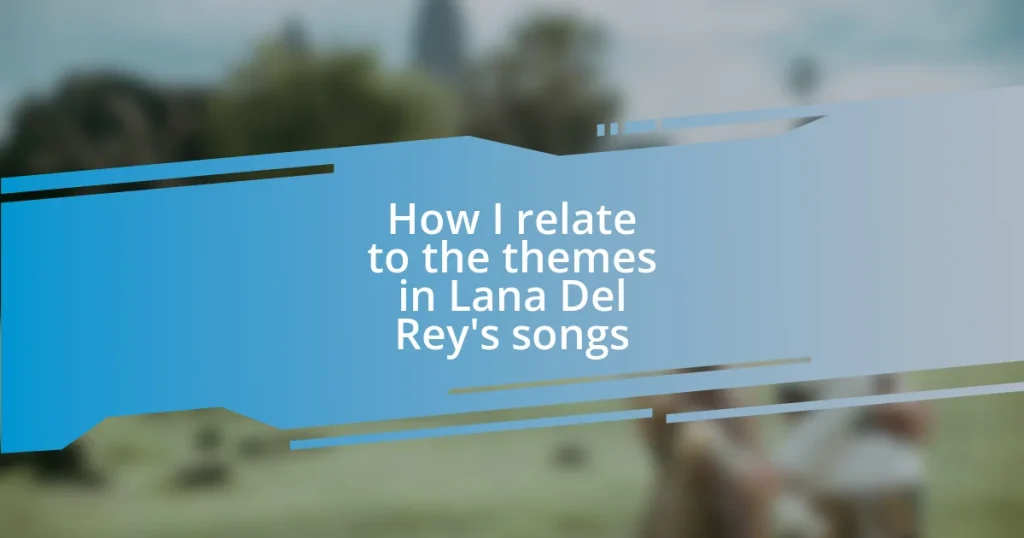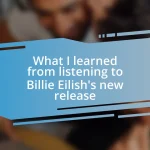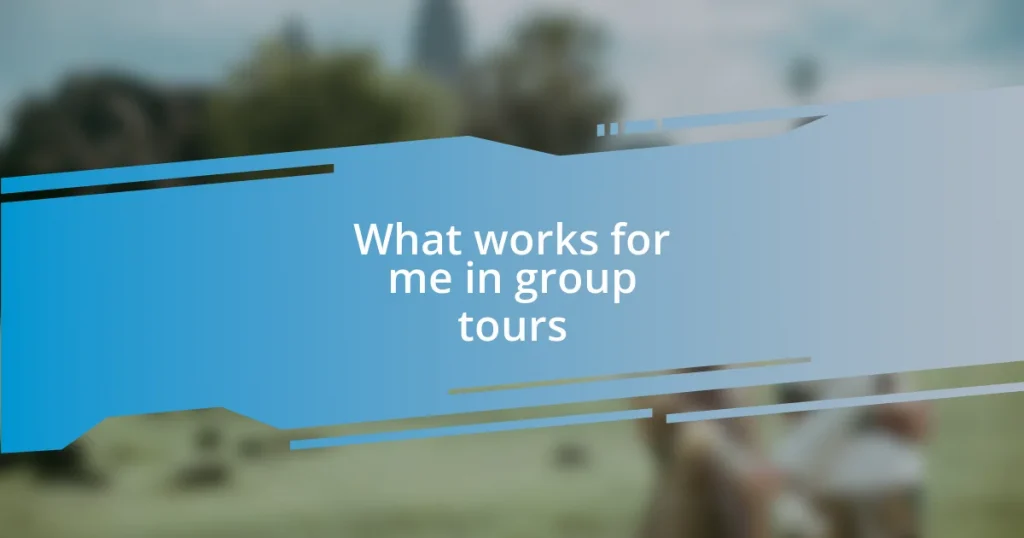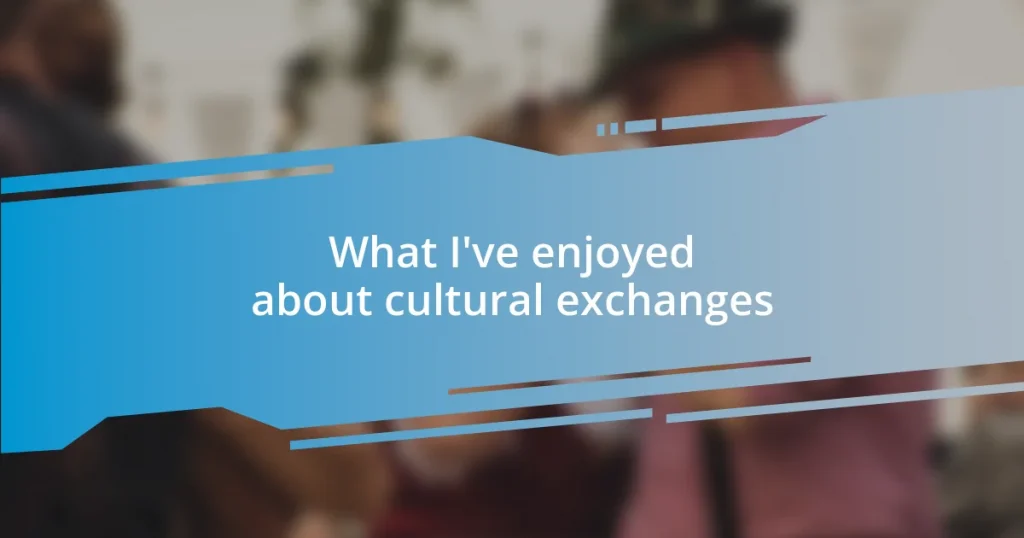Key takeaways:
- Lana Del Rey’s music explores themes of love, loss, nostalgia, and vulnerability, resonating deeply with personal experiences of emotional complexity.
- Her songs provide solace and empowerment during times of heartbreak, encouraging listeners to confront their feelings and embrace their vulnerabilities.
- The artist’s reflections on mental health highlight the healing power of music, fostering understanding and empathy for personal struggles.
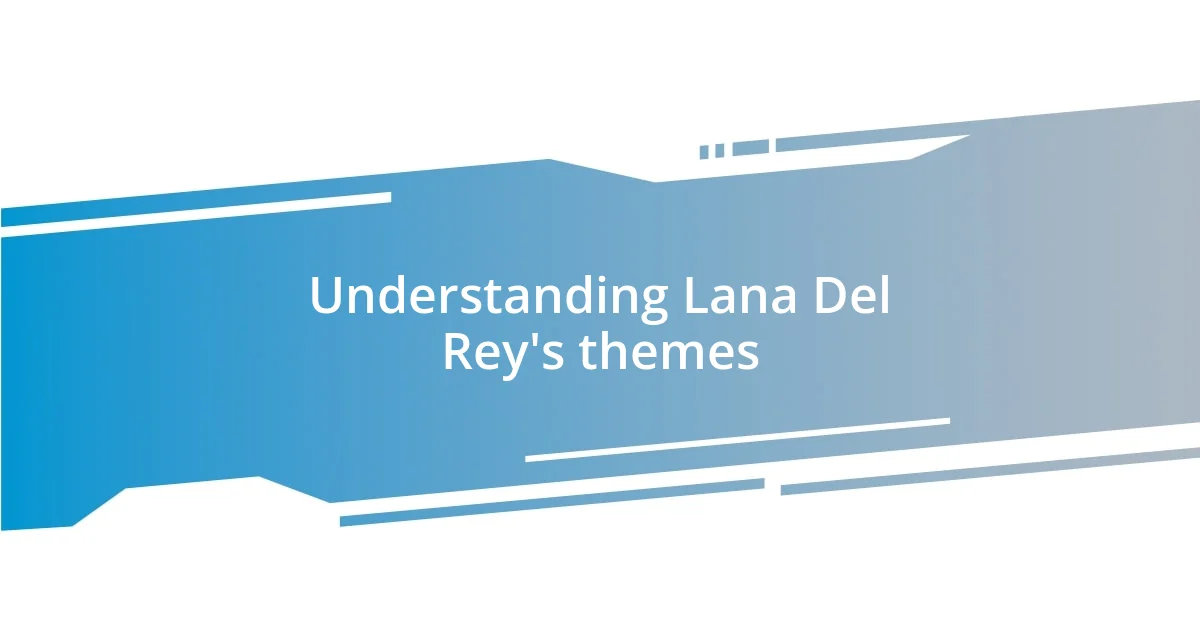
Understanding Lana Del Rey’s themes
Lana Del Rey’s themes often revolve around the complexities of love, loss, and nostalgia. When I listen to her track “Young and Beautiful,” I can’t help but reflect on my own fleeting moments of youth and the inevitable passage of time. Have you ever felt that haunting question of whether someone will still love you when the sparkle of youth fades? It’s a sentiment that resonates deeply and makes her music so relatable.
The melancholic beauty of her lyrics speaks to a longing for something that feels just out of reach. I remember sitting in a dimly lit room, surrounded by friends, and blasting “Ride” on repeat. The way she captures that yearning for freedom and acceptance resonates with many people, myself included. It prompts me to think about my own chase for adventure, along with the desire to find a place where I truly belong.
Another striking theme in her work is the duality of desire and despair. In songs like “Video Games,” I find myself reflecting on past relationships that were blissful yet tinged with sadness. Isn’t it interesting how love can evoke such profound joy while simultaneously harboring a sense of loss? Her ability to intertwine these emotions makes her music a treasure trove for anyone who’s ever grappled with the ups and downs of romance.
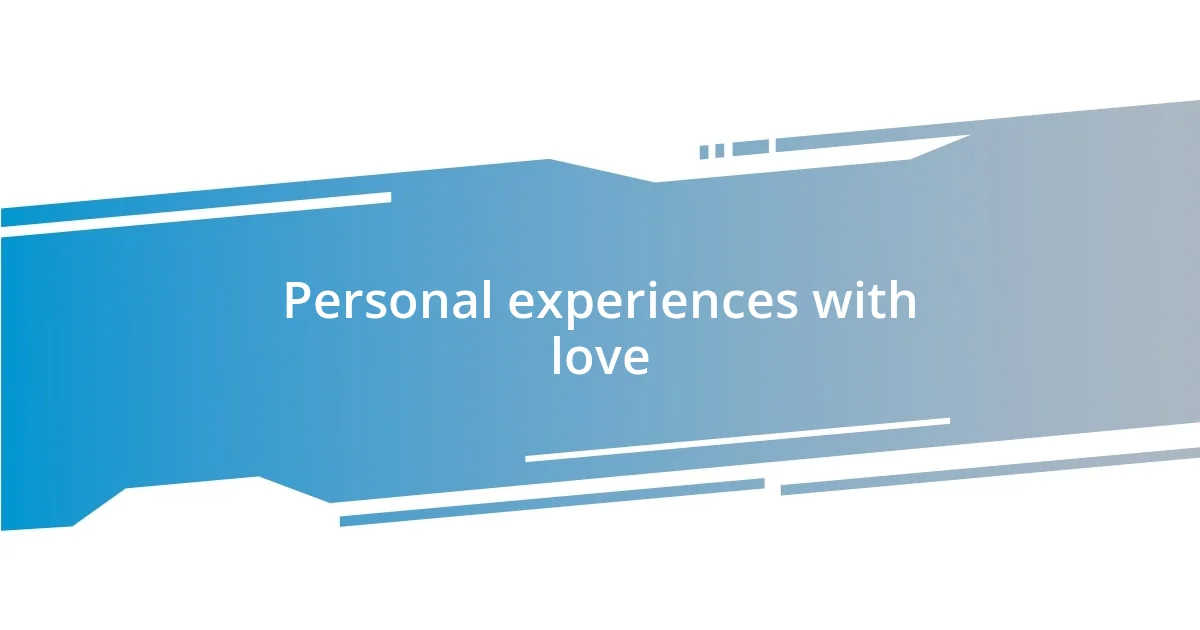
Personal experiences with love
When I think about my personal experiences with love, I often recall the excitement of a first crush. Much like the exhilarating rush Lana sings about in “Love,” I remember those butterflies in my stomach as I waited for a glance or a smile. Do you remember your first love? It was a rollercoaster of emotions, one moment you were soaring, and the next, you were gripping tightly to the safety bar, unsure of what was coming next.
In contrast, I’ve also faced the heartbreak that sometimes accompanies love. Listening to “Heroin” takes me back to a dark time in my life, where I found myself lost in the depths of a relationship that felt addictive yet destructive. I felt as if I were spiraling in a complicated mix of deep affection and profound loss. Have you ever experienced love in a way that seemed beautiful but was ultimately unhealthy? It’s a powerful reminder of how love can sometimes lead us to explore the shadows within ourselves.
Ultimately, love has taught me resilience. Songs like “Freak” resonate with me as I navigate the delicate balance between vulnerability and self-protection. I often find myself reflecting on moments where I embraced my true self, despite the risks involved. Isn’t there something liberating about being open to love while also honoring our boundaries? These themes in Lana’s work remind me how love can be both a safety net and an open field, full of possibilities and challenges.
| Experience | Related Lana Del Rey Song |
|---|---|
| First crush excitement | Love |
| Heartbreak and loss | Heroin |
| Resilience in being vulnerable | Freak |
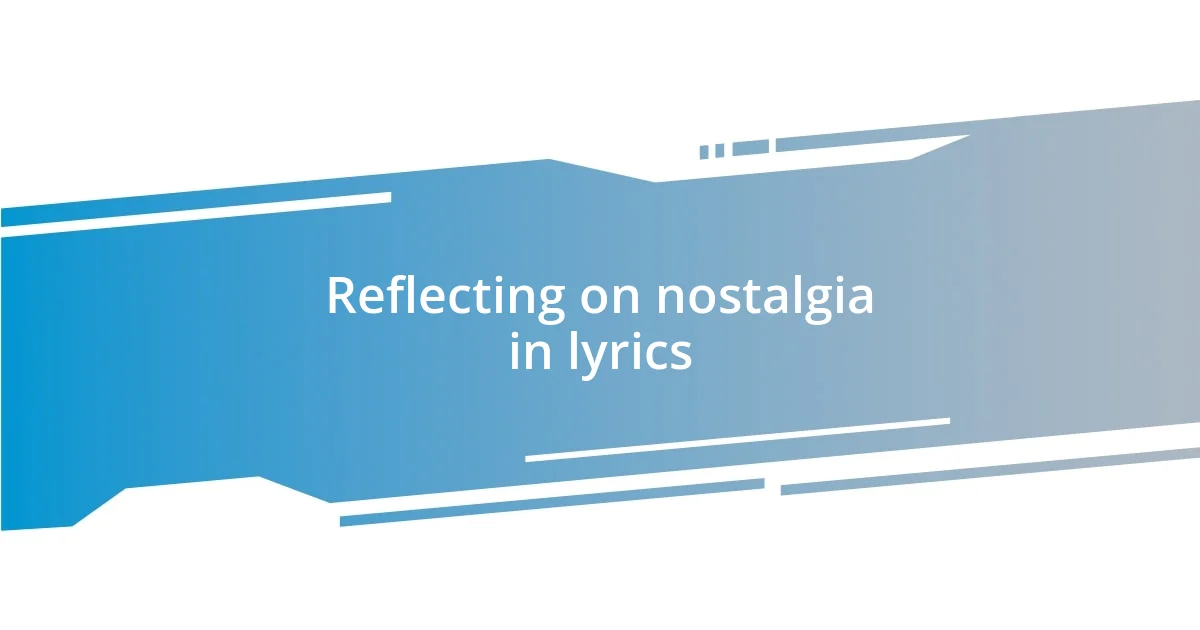
Reflecting on nostalgia in lyrics
The theme of nostalgia in Lana Del Rey’s lyrics often strikes a chord with my own reflections on times gone by. I can recall evenings spent with friends during my adolescence, where we would share dreams and doubts under starlit skies, reminiscent of her song “Carmen.” The wistfulness of her words makes me think of how easily those moments slip away, leaving me with only memories tinged with longing.
- Nostalgic moments in her music transport me back to my carefree youth.
- Listening to “Carmen” evokes memories of late-night conversations filled with laughter and vulnerability.
- Lana’s lyrics remind me that nostalgia is a bittersweet emotion, often filled with both joy and a touch of sorrow.
There’s a vivid pulse in her lyrics that captures my own experiences with nostalgia—especially when reflecting on relationships that faded over time. I remember an old love letter tucked away in a box, its ink slightly smudged yet full of genuine emotion. “Blue Jeans” captures that sense of longing perfectly, walking the line between love and loss. Her ability to articulate such deep feelings gives me comfort in knowing that others feel this way too.
- The reminiscence she evokes often makes me want to find that old letter again.
- “Blue Jeans” encapsulates the thrill of love alongside the ache of memories fading.
- Nostalgia, in my experience, feels like a double-edged sword, joyous yet piercingly painful.
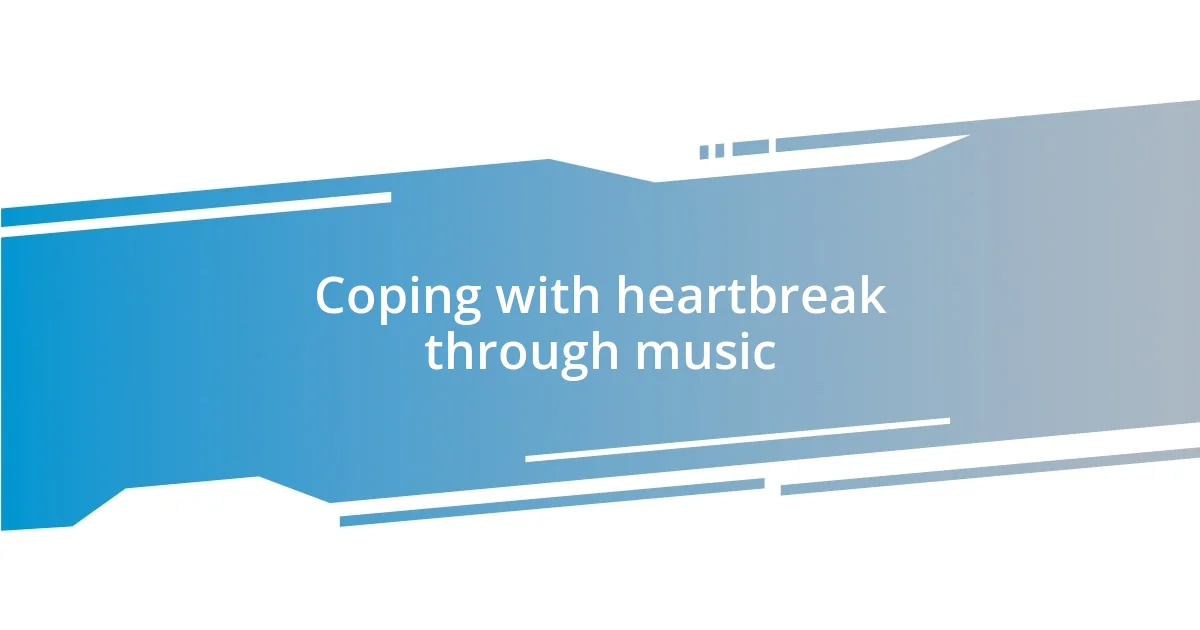
Coping with heartbreak through music
Music has been my refuge during heartbreak. I remember a specific night when I played “Video Games” on repeat after a painful breakup, savoring the melancholic melodies that strangely comforted me. Have you ever felt how a song can feel like a friend sharing your grief? Through Lana’s reflective lyrics, it was as if she understood my anguish, providing solace in a time when I felt achingly alone.
When I hear “Chemtrails Over the Country Club,” I’m reminded of how easy it is to get lost in longing and regret. I’ve often found that pouring my emotions into music creates space for healing. Each note feels like it wraps around my heart, turning my pain into something palpable yet beautiful. It’s fascinating how rhythms and lyrics intertwine to help us cope—like therapy sessions that don’t ask for anything in return.
One moment stands out: I was driving home through a rainstorm, tears streaming down my face, and “Love” playing softly in the background. The way she sings about deep connections resonates with universal truths, making me realize that heartbreak doesn’t just end—it transforms. I’ve learned that even amidst sorrow, music can be a powerful tool for reflection and growth. How do you navigate your own heartbreak through the tunes you choose?
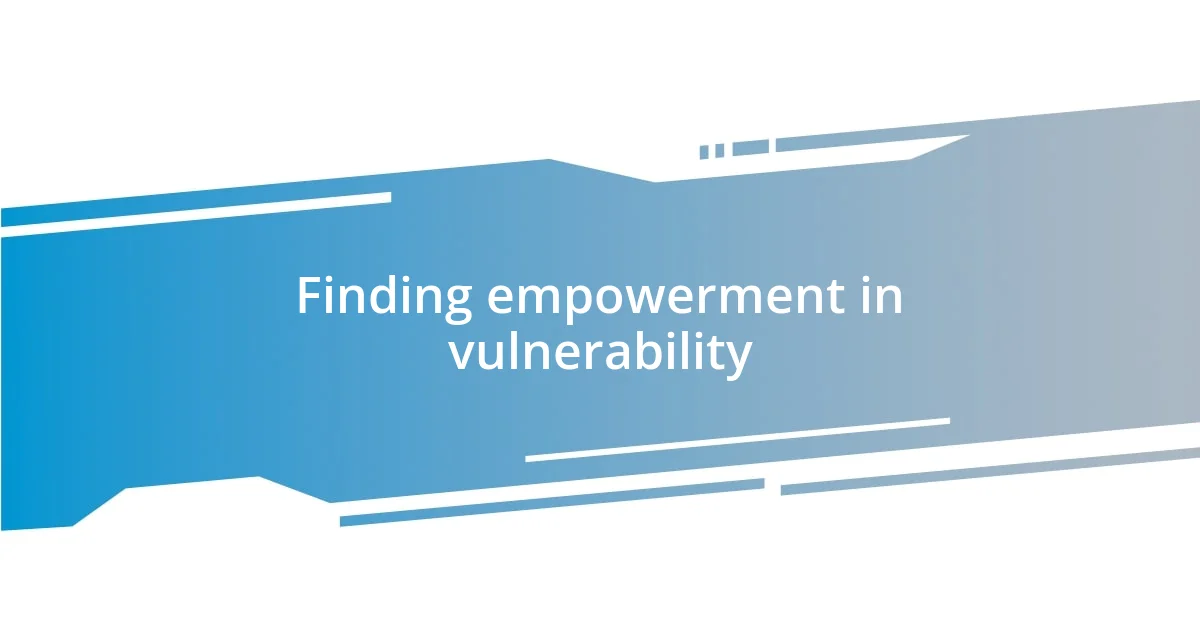
Finding empowerment in vulnerability
While listening to songs like “Pretty When You Cry,” I often find a strange sense of strength in the raw vulnerability she portrays. I remember a time when I stumbled through my own emotional turmoil, feeling exposed and unguarded. Instead of shying away from those feelings, I learned that embracing them, much like Lana does in her lyrics, allowed me to reclaim my power.
Lana’s haunting melodies often invite me to reflect on my own insecurities. I once attended an open mic night, and as I nervously stepped on stage, her song “Terrence Loves You” played in my mind, reminding me that vulnerability can be beautiful. Have you ever felt your heart race just before sharing a part of yourself with others? It’s that tender moment where your truth meets the world, and I’ve found that this is where empowerment truly begins.
In opening myself up, I can connect with others on a deeper level. I recall sharing my fears with a close friend over coffee one rainy afternoon, feeling more liberated than ever as I peeled back the layers of my guarded exterior. Listening to “Love Song” in the background, I felt like Lana was cheering me on, celebrating my journey toward understanding that strength is not about being invulnerable, but about thriving in authenticity.
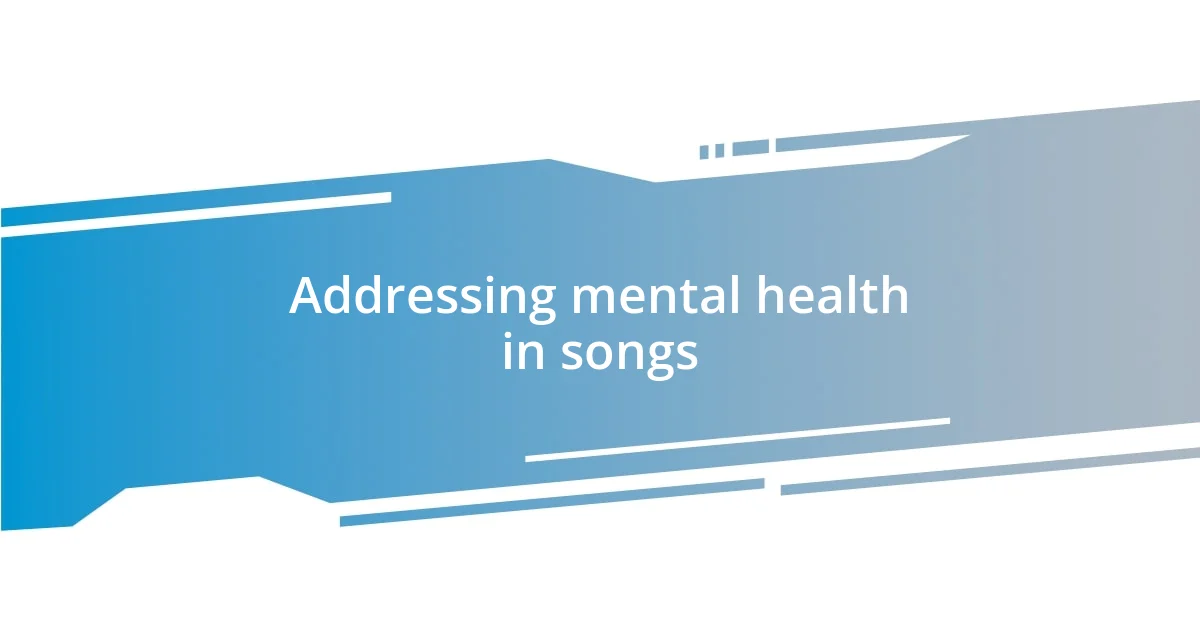
Addressing mental health in songs
When I listen to Lana Del Rey’s music, especially tracks like “Blue Jeans,” I connect deeply with the themes of anxiety and despair she often expresses. There was a time when I felt overwhelmed by the pressures of life, and her haunting voice became a mirror to my inner chaos. Have you ever found comfort in someone else’s words that so perfectly articulate your feelings? In that moment, I realized I wasn’t alone in my struggles; it’s a profound reminder that vulnerability in art can foster understanding and empathy.
Songs like “Mariners Apartment Complex” challenge the stigma surrounding mental health, encouraging listeners to confront their feelings rather than hide them. I remember playing this song during a particularly challenging week, when I was battling self-doubt and fear. As I listened, I felt as if her lyrics were whispering validation to my weary soul. It’s incredible how music can serve as a catalyst for self-acceptance, isn’t it?
Delving into the emotional depths of her lyrics, I often reflect on my own mental health journey. One chilly evening, I sat in my favorite armchair, listening to “Hope is a Dangerous Thing for a Woman Like Me to Have,” and I felt an overwhelming wave of recognition. The raw honesty in her words sparked something within me—a desire to confront my own complexities rather than gloss over them. Isn’t it empowering to hear someone voice the struggles we often keep to ourselves? It’s these moments that truly illuminate the healing power of addressing mental health through music.











